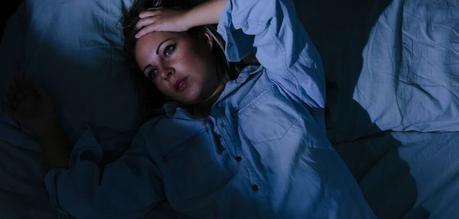
Insomnia (sleeplessness) is a common sleep disorder in which people having trouble falling asleep, staying asleep, or getting enough sleep. People with insomnia often have trouble functioning the next day due to fatigue and are at greater risk of developing other health problems such as depression and heart disease.
People with sleeplessness may report that they wake up feeling unrefreshed despite sleeping 8 hours or more, or they may say they don't feel fully awake upon waking up in the morning.
Not being able to fall asleep at night and then waking up early in the morning are the main reasons people seek medical help for insomnia.
What is insomnia?
Insomnia is a sleep disorder that disrupts your ability to fall asleep, stay asleep or both. It's also known as sleeplessness. Insomniacs often have trouble staying asleep for at least an hour during the night.
This makes it difficult to get enough hours of sleep each day. The most common type of insomnia is called insomnia with short duration, which is when someone has trouble sleeping for less than three nights in a row.
Chronic insomnia is more serious because it lasts for over three consecutive nights. People with chronic insomnia may need help from a medical professional to return their sleep schedule back to normal.
What are the causes of insomnia?
The causes of insomnia can be grouped into three categories:
- psychological factors;
- physiological factors; and
- lifestyle factors.
Psychological factors include anxiety disorders such as post-traumatic stress disorder (PTSD), depression or dysthymia, or panic disorder. If a person is dealing with mental health issues that are not adequately treated, they may have a hard time sleeping.
Psychological treatments for insomnia may include cognitive behavioral therapy, which helps patients become aware of the thoughts that are keeping them awake and replace those thoughts with more positive ones in order to fall asleep more easily.
Sleep hygiene education may also help by teaching the patient what activities they should do before bed to prepare themselves for sleep.
Physiological factors may include a combination of physical problems such as pain or discomfort. While lifestyle factors include stress due to work or other factors.
What are the symptoms of insomnia?
The most common symptom of insomnia is trouble falling asleep. Other symptoms include waking up in the middle of the night and not being able to go back to sleep or waking up too early in the morning.
sleeplessness can also cause daytime drowsiness and irritability. It may also lead to difficulties concentrating on tasks that require mental energy. If you're experiencing any of these symptoms for more than a week, you may have insomnia.
How is insomnia diagnosed?
Doctors can diagnose insomnia by asking about your health history, how often you wake up during the night, how long it takes to fall back asleep after waking up at night, how sleepy you feel during the day, whether anyone else in your family has had trouble sleeping before now, whether there's anything specific bothering you before bedtime (such as an argument with a loved one), and if there's something specific causing stress during the day (such as financial worries). There are different treatments available depending on what caused your sleeplessness.
When diagnosing insomnia, a doctor might ask about the person's sleeping habits as well as what medications they take. Doctors also might do a physical exam or refer the patient to an internist or neurologist.
To diagnose sleeplessness, doctors ask about the person's sleeping habits and any medications they take. The doctor may also do a physical examination or refer the patient to an internist or neurologist.
There are no tests for insomnia, but when symptoms of insomnia occur in conjunction with other medical conditions, there are often other tests that can be done. Treatment is only needed when there is evidence of distress from sleeplessness.
What are the treatments for insomnia?
There are a few different treatments for sleeplessness. Some of the most common treatments for insomnia include cognitive behavioral therapy, medication, herbal remedies such as valerian root or chamomile tea, or relaxation techniques like meditation.
Cognitive behavioral therapy is used to teach you how to change your thought patterns that are causing you distress. Medication such as melatonin can be prescribed by a doctor to help promote sleep when combined with other treatment options.
Research has shown that there is not enough evidence to support the use of over-the-counter (OTC) drugs in promoting sleep. Valerian root and chamomile tea are both herbs known for their sedative properties.
You can drink either of these herbs in order to relax before bedtime so you have better chance at getting some restful sleep. Meditation has been found to reduce anxiety which can cause an inability to fall asleep.
Conclusion
The causes of sleeplessness are diverse, but the best way to treat it is through a combination of self-care techniques (such as exercise) and therapies. If you have chronic insomnia that isn't improving with these methods or if you find yourself feeling sleepy during the day for no reason at all, it's probably time to see your doctor.

